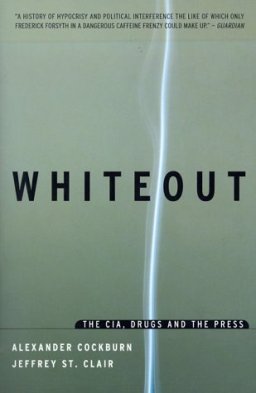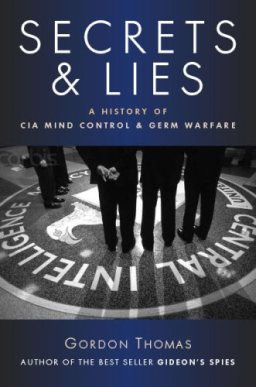Lobster Issue 42 (Winter 2001/2)
Alexander Cockburn and Jeffrey St. Clair London:Verso, 1999, £10 Much has been written about the role of the Central Intelligence Agency in the global drugs trade but this is the first book that actually brings it all together in one place. The authors haven’t exposed much that is new, instead they have taken […]
Lobster Issue 57 (Summer 2009)
[…] history of CIA mind control and germ warfare Gordon Thomas JR Books (www.jrbooks.com) 2007, h/b, £20 Gordon Thomas has written a number of books on the intelligence services and this has a glossy cover, voluminous appendices and some admiring quotes. But it adds little to what we already know about the CIA’s research […]
Lobster Issue 48 (Winter 2004)
Srebrenica In Lobster 46 I noted that the publisher of Cees Wiebes’ Intelligence and the War in Bosnia 1992-1995 had declined to supply a review copy. Mr Wiebes subsequently informed me that the full report on Srebrenica, commissioned by the Dutch government, including the material which made up his book, is on-line, in English, […]
Lobster Issue 50 (Winter 2005/6)
‘Britain, 2005. Saddam Hussein, still the ruler of Iraq and possessor of a long-range nuclear missile, seeks revenge on the west. Warned by intelligence reports of Saddam’s plan, the United States deploys a space-based missile shield, which will catch the Iraqi rocket before it gets to Washington. The key installation is based in Yorkshire […]
Lobster Issue 38 (Winter 1999)
[…] Repington (‘….career ended due to an indiscretion, 1902…’ according to the Dictionary of National Biography), the military correspondent of the Morning Post. Repington fed smears, gossip and intelligence to Pemberton-Billing. There were still some desultory peace talks with Germany under way. Repington (and those who backed him) wanted these stopped. Many allegations were aimed […]
Lobster Issue 24 (December 1992)
[…] by Basque ETA terrorists on behalf of the Sandinistas. Curiously the reports were based on leaks – phone-calls to major newspapers in Washington and the U.S. from Intelligence sources, including the State Department’s Office of Public Diplomacy’. The latter is a kind of updated IRD, and ‘public diplomacy’ is a 1980s euphemism for disinformation […]
Lobster Issue 55 (Summer 2008)
[…] counsel of the UK and other similarly-minded allies. This is the very essence of the liberal progressive ‘third way’ model which has been promoted by the British intelligence and security establishment and which was central to the decision to follow the US into Afghanistan and Iraq. This model made one big assumption that seemed […]
Lobster Issue 31 (June 1996)
[…] on here? Cyberspace Wars: Microprocessing vs Big Brother Multiculturalism and the Ruling Elite Thirty Years after: JFK Researchers Gather in Dallas Cults, Anti-cultists and the Cult of Intelligence Cold Warriors Woo Generation X The ‘Information Superhighway’ and its discontents Organised Crime Threatens the New World Order The Decline of American Journalism The 1960s and […]


